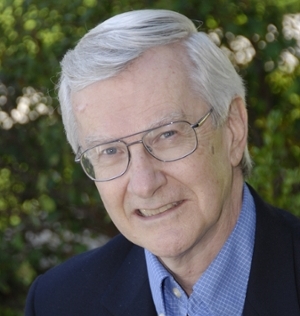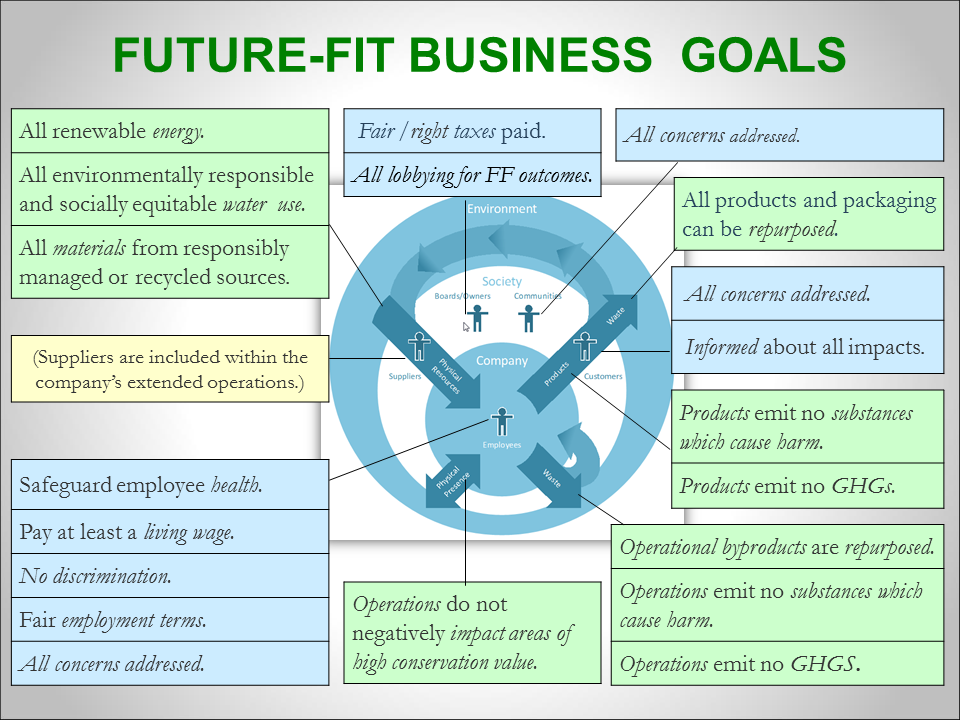The powerful business case for sustainability
Posted by Michelle Cholak on March 02, 2016
With an investment of $46,186 between 2006 and 2008 to improve energy efficiency in his facility, Paul Rak, president of industrial capital equipment manufacturing company, VeriForm, reduced his energy costs by more than 58% – $89,152 annually – and decreased his company’s carbon footprint by over 45% in just two years.
Paul Rak is not the only business leader to recognize the value of corporate sustainability strategies. According to Bob Willard, the most innovative companies today are enhancing their competitive positioning by embracing the new sustainability imperative.
“We need to wake companies up to reality – business, society and the environment are nested interdependencies, but if the environment fails, so too does business and society,” said the Durham Region sustainability guru in a presentation to UOIT students, staff and faculty last week.
 Willard explained that businesses faced with decision-making are only concerned with two things, the risk of not doing something and the opportunities available if they did. He says that “global sustainability megaforces”, such as climate change, energy and fuel, population growth, water scarcity and food security, will result in both risks and opportunities for businesses.
Willard explained that businesses faced with decision-making are only concerned with two things, the risk of not doing something and the opportunities available if they did. He says that “global sustainability megaforces”, such as climate change, energy and fuel, population growth, water scarcity and food security, will result in both risks and opportunities for businesses.
“The language of business is all about the bottom line and there is a very powerful business case for sustainability,” said Willard (pictured on the right).
In May 2010, David Luben and Daniel Esty wrote about a new ‘sustainability imperative’ in Harvard Business Review. Magnified by escalating private and public concerns for climate change, pollution, food scarcity and resource depletion, the authors explained that companies will soon wake up to the realities of what it means to manage sustainability strategically: “Best practices will emerge, and sustainability scorecards will allow companies to track cost and risk reduction as well as evaluate value-creation activities.”
In his book, The New Sustainability Advantage, Willard shows that if a typical company were to use best-practice sustainability approaches already being used by real companies, it could improve its profit by at least 51% to 81% within three to five years, while avoiding a potential 16% to 36% erosion of profits if it did nothing. His open-source business model is available online for anyone to use and input their own data, allowing people to quickly identify the high-leverage benefit areas for themselves.
“The quantified business case for sustainability is more compelling than ever before,” says Willard. “Future-fit businesses will create value while in no way undermining – and ideally increasing – the possibility that humans and other life will flourish on Earth forever. Companies are no longer responsible for just their business operations, they must now consider their upstream and downstream supply chains.”
Working with Geoff Kendall and the Future-Fit Foundation, a non-profit organization based in the UK, Willard helped develop the ‘Future-Fit Business Benchmark’. The free, open-source resource defines the necessary and sufficient level of performance on 21 environmental and social aspects for a future-fit company.
“At this point, on this planet, we have to stop using certain types of energy,” he said. “Climate change, water and income inequality are three of the most pressing issues facing mankind. If every company achieved all of the 20 goals, we’d be fine; not one or two goals, all of them need to be achieved. The objective of the goals is that we know what needs to be done, what’s lacking is the will to actually do it.”

No company today is achieving all 20 of the goals, but there are some aspiring to. If we continue on the path we’re on today, by 2030 the atmosphere will contain 450 parts per million (ppm) of CO2, leading to an average global temperature of 2⁰C above pre-industrial times – the maximum temperature rise that still gives us a 66% probability of avoiding climate destabilization.
“The implications are huge but we must ground ourselves,” said Willard. “On the supply side, we need to phase out fossil fuels, live within our carbon budget until we do and scale up our renewables in the meantime. On the demand side, we must improve our energy efficiency, redesign our urban lifestyle to make it more walkable and bikeable, and electrify everything. We also need to create a national smart grid, from coast to coast to coast, and we need to see some storage breakthroughs in fuel cells and batteries.”
If Canada chose to make an orderly transition to 100% renewable energy in the next 25 years, Willard quoted research by Guy Dauncey that suggests 18 million new green job-years would be created versus 11 million total fossil fuel job-years lost. And after the transition, 876,000 new permanent jobs would be established compared to 850,000 jobs lost.
“According to new research by IRENA, if the world doubled its current market share of renewable energy to 36% by 2030, global GDP could grow by almost $1.3 trillion. So the message is this: everything is do-able once you decide to do it; it’s not technological problems holding us back, it’s a ‘will’ problem. We have to be motivated to do it.”
~
Bob Willard is a leading expert on quantifying and selling the business value of corporate sustainability strategies and has given over a thousand presentations to corporate, government, university, and NGO audiences. For more information on Bob, his business case simulators and his book, The New Sustainability Advantage, please visit sustainabilityadvantage.com.
Filed under: Sustainability 101